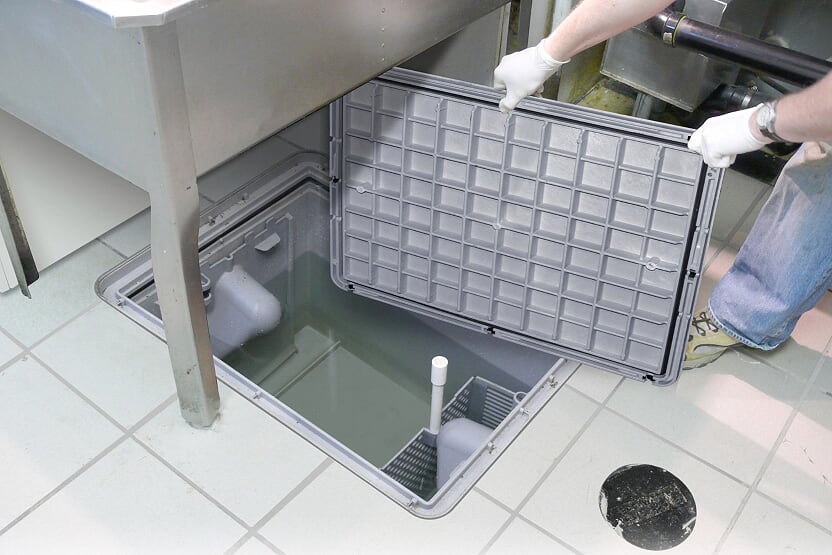
Image Source: Google
Grease traps are essential components in commercial kitchens and food service establishments to prevent fats, oils, and grease (FOG) from entering the sewage system. Proper maintenance of grease traps is crucial to prevent clogs, backups, and foul odors. If you are looking for a grease trap cleaning service, you can browse this website.
Importance of Grease Trap Cleaning
Grease traps play a vital role in preventing FOG from clogging the sewage pipes and causing environmental pollution. Regular cleaning and maintenance of grease traps not only ensure compliance with local regulations but also offer the following benefits:
Prevent Clogs
- Regular cleaning helps remove accumulated grease, preventing clogs in the trap and sewage lines.
Eliminate Odors
- Grease traps can produce foul odors if not cleaned regularly. Proper maintenance helps eliminate unpleasant smells in your kitchen.
Extend Equipment Lifespan
- Clean grease traps lead to better performance of kitchen equipment, such as dishwashers and sinks, resulting in an extended lifespan.
Tips for Grease Trap Cleaning
Follow these essential tips to ensure effective grease trap cleaning and prevent clogs and odors in your commercial kitchen:
Establish a Cleaning Schedule
- Develop a regular cleaning schedule based on the size of your grease trap and the volume of cooking in your kitchen.
- Consult with a professional grease trap cleaning service to determine the frequency of cleaning required for your specific needs.
Use the Right Cleaning Products
- Avoid using harsh chemicals that can damage the grease trap or harm the environment.
- Use biodegradable and eco-friendly cleaning products that are effective in breaking down grease and preventing odors.
Scrape Plates and Utensils
- Before washing dishes, scrape off excess food and grease into the trash to prevent them from entering the grease trap.
- Implement a pre-rinse protocol to remove as much grease and food particles as possible before they reach the grease trap.
Monitor Grease Levels
- Regularly check the grease levels in the trap and schedule cleanings accordingly to prevent overflows and backups.
- Keep a log of grease trap cleanings and inspections to track maintenance and ensure compliance with regulations.
Signs of a Clogged Grease Trap
Recognizing the signs of a clogged grease trap is crucial to prevent backups and costly repairs. Look out for the following indicators that your grease trap may be clogged:
Slow Drainage
- If water is draining slowly in sinks and dishwashers, it may indicate a clog in the grease trap.
Foul Odors
- Unpleasant smells coming from drains or grease trap area can be a sign of accumulated grease and organic matter.
Grease Overflow
- If you notice grease overflowing from the trap or backing up into sinks, it is a clear indication of a clog.
Professional Grease Trap Cleaning
While regular maintenance is essential, professional grease trap cleaning is recommended to ensure thorough cleaning and compliance with regulations. Consider hiring a professional grease trap cleaning service for the following reasons:
Expertise
- Professional cleaners have the knowledge and expertise to clean grease traps effectively and safely.
Compliance
- Professional cleaning services are well-versed in local regulations and can ensure that your grease trap meets compliance standards.
Preventative Maintenance
- Regular professional cleanings can help prevent costly repairs and extend the lifespan of your grease trap.
By following these essential tips for grease trap cleaning and maintenance, you can prevent clogs, odors, and backups in your commercial kitchen. Remember that proper upkeep of grease traps is not only crucial for the smooth operation of your kitchen but also for protecting the environment and complying with regulations.